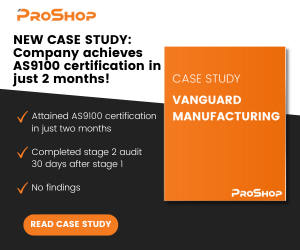Decipher The Meaning Of ‘Total Cost'
This certainly should not come as a shock to anyone, but machining a part that meets the specifications of a drawing has become commonplace.
This certainly should not come as a shock to anyone, but machining a part that meets the specifications of a drawing has become commonplace. There are tens of thousands of shops that can take a drawing and make parts that are dimensionally correct, and this has led to the downward price pressure almost everyone in the industry has experienced. Let's be honest. If you were a buyer of screw machined parts, your objective would be to procure dimensionally correct parts at the lowest total cost. Let me repeat: "lowest total cost." Let that phrase linger awhile in your mind.
How did production machining become commonplace? Blame it on technology and the proliferation of CNC machines. It is a lot easier to make complex parts in high volume today than it was just a few years ago. Therefore, there are many more shops doing so, including the ranks of those offshore. Humor me when I suggest that all shops have basically the same equipment: CAD/CAM and metrology technology.
The thing that should be keeping you awake at night is figuring out how to differentiate your shop from many other shops who can produce almost perfect parts. You can't make big money selling a commodity product. You can make big money by differentiating your company, helping your customers make more money and providing a better experience to your customer than your competitors.
In January, I had to fly from Atlanta, Georgia to Los Angeles, California to attend a trade show in which my company was exhibiting. I went online to a travel marketplace and quickly found a number of air carriers flying that route on the day I wanted to go. No doubt, a flight between Atlanta and Los Angeles is a commodity service. However, the prices ranged from $198 to more than $600. I paid $428 to fly Delta because it was a non-stop flight, the time was right, I earned my coveted SkyMiles, and I was able to use previously accumulated points to upgrade to first class.
Delta differentiated themselves in a commodity market by offering a service that saved me valuable time (time is money), rewarded me for doing business with them (added value) and provided me with a better experience than I could get flying with its competitors.
Experience and differentiation matters. It's how Starbucks turns 5 cents worth of coffee beans into a $4 latte.
Your customers have exactly the same mentality as I did when purchasing my ticket for air travel. They are the keys to figuring out what differentiates your company from the plethora of others they could be doing business with for a lower cost per part. Talk to your customers and ask them why they do business with you. Ask them what "total cost" means to them. Ask them what factors cause them to choose one supplier over another. Ask them who their best supplier is (regardless of the service they provide) and why they hold them in such high regard. You will find that your customers will be very happy to have these discussions with you; after all, you are a key link in their supply chain. It is in their best interest to help you remain strong, grow and provide even more value to them.
Take the insights from your customers and build upon them, and do more of the thing that resonated with them. Craft a consistent marketing message that highlights your differentiating points. This will hit home with the companies you would like to have as your customers. When you speak to prospective customers, don't start off by saying, "We do production machining." Lead with your differentiating value proposition. Perhaps say, "We help our customers reduce costs and reach higher margins by providing production machined parts in a manner that reduces their inventory and virtually eliminates all warranty claims related to components in which our parts reside."
I would like to recommend a book to you by Seth Godin called Purple Cow: Transforming Your Business By Being Remarkable (Penguin Group, New York). It's about how to differentiate yourself. It's an easy read and very thought provoking.
Mitch Free is president & CEO of MfgQuote.com, Atlanta, Georgia. He can be reached at (770) 444-9686, ext. 2946 or at mfree@mfgquote.com
Read Next
Do You Have Single Points of Failure?
Plans need to be in place before a catastrophic event occurs.
Read More5 Aspects of PMTS I Appreciate
The three-day edition of the 2025 Precision Machining Technology Show kicks off at the start of April. I’ll be there, and here are some reasons why.
Read MoreA Tooling Workshop Worth a Visit
Marubeni Citizen-Cincom’s tooling and accessory workshop offers a chance to learn more about ancillary devices that can boost machining efficiency and capability.
Read More

















